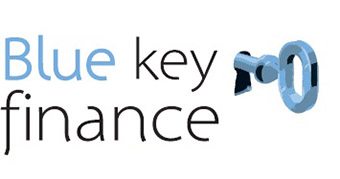Keeping your mortgage on track
Mortgage Control
If you are making your mortgage repayments but finding your finances are pretty stretched, there are things you can do. Here we explain what action you can take to keep on top of your repayments.
Look at your repayments
Use our loan repayment calculator to look at your repayments and test different scenarios. What would they be if interest rates go up? Would you still be able to afford them? What if you or your partner lost your job? Could you make the mortgage repayments if that happened? Do you have a buffer of savings you could draw on?
Create a budget
Monitoring your spending can help you to keep up with your mortgage repayments. How do you do this? Make a budget, stick to it and adjust it as your financial situation changes. Use our budget planner to do this.
Goal setting
A budget will help you to set a goal you can work towards. Whether you are trying to pay off your mortgage faster, save for a big bill that is coming up or build up your savings for a rainy day, here are some goal-setting rules to follow:
- Be specific – You’re more likely to achieve your goal if you work out exactly what you want and why
- Be realistic – Don’t make your budget so tight you won’t be able to stick to it – look at cutting down on extras while still allowing an occasional treat
- Stay motivated – Set yourself a time frame to accomplish your goal and, if you need to, break your goal down into smaller chunks to make it easier to achieve
Speak to your bank
If you are struggling with your repayments, talk to your bank about it. Your bank must assess and respond to your request within a set amount of time.
Get over the fear factor
Most people find it stressful and embarrassing to speak to their bank when they are having trouble with their mortgage repayments or they worry that raising the issue could have a negative impact. But remember, getting into financial difficulty is something that could happen to anyone. The important thing to keep in mind is that by taking action quickly, you can stop a small problem from escalating into a big one.
Options to discuss
If you think your problems are short term and can be sorted out fairly quickly, your bank can help you by changing the terms of your loan. This is called a ‘hardship variation’. Depending on when you took out your loan, there are different thresholds (maximum amounts allowed) for accessing a hardship variation.
Here are some of the options you could discuss with your bank:
- Extend your loan period, so you make smaller repayments over a longer period
- Postpone your repayments for an agreed period
- Extend your loan period AND postpone your repayments for an agreed period
- Other ways to make your loan repayments more affordable
If your problems are long term and your circumstances are unlikely to change then the bank may permanently agree to change your repayments. Just keep in mind that this will increase the total amount you will have to repay, as you will pay more in interest if you choose to pay off the loan over a longer period of time.
If you are not happy with your bank’s response you can ask to speak to their internal complaints section.
Talk to the Ombudsman
If you are still not happy with the bank’s decision, you can lodge a dispute (for free) from your bank’s external dispute resolution scheme – either the Financial Ombudsman Service 1800 367 287 or the Credit and Investments Ombudsman 1800 138 422.
Ask for help
Need more help? If you are unsure what to do or are having trouble negotiating with your bank, then you can get free confidential help from a financial counsellor. Financial counselling is a free service offered by community organisations, community legal centres and some government agencies. Financial counsellors can help you solve your money problems.
The Financial counselling hotline is 1800 007 007.
If you haven’t already, click here to download our FREE E-Book on “Refinancing”or email us instead and we’ll end it to you within 24 hours.



Leave a Reply
Want to join the discussion?Feel free to contribute!